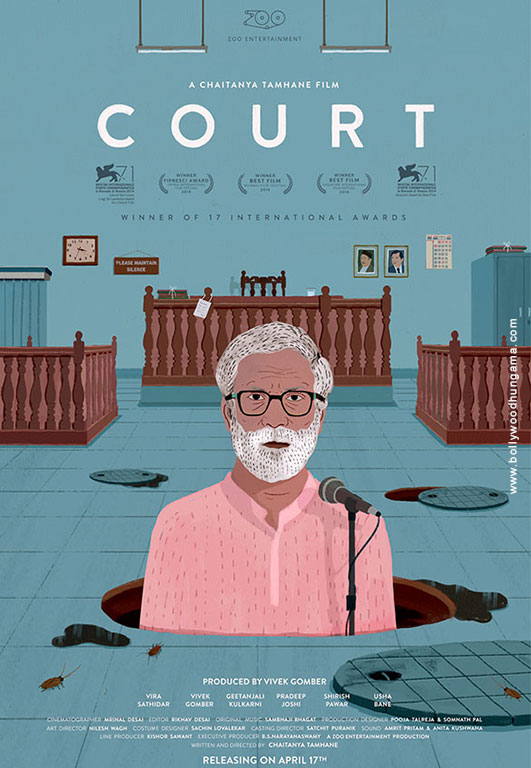Chaitanya Tamhane's directorial debut, Court, is a multilingual, award- winning film on the "quiet violence" of the judicial system and how the State uses it to suppress political activists. Financed by the Hubert- Bals Fund and private equity, it opened to rave reviews and won Best Director and Best Film in the International Competition section of the 16th Mumbai Film Festival. It also premiered at the Venice Film Festival earlier in the year, where it won the Lion of the Future Award for the best first feature. Court successfully invokes the mood of a trial based on patently ridiculous charges, conducted with no intent other than disciplining and harassment of an activist. A phenomenon that is all too common in India. The theme is very timely given the increasingly intolerant nature of the Indian State and the large number of political prisoners languishing in jail all across the country.
The film follows the trial of Narayan Kamble (Vira Sathidar), a Dalit political activist and lokshahir (people's poet) who is arrested on stage during a performance in Bombay on charges of "abetment of suicide." The police claim that Kamble has penned and performed "incendiary" lyrics calling on Dalits to "drown themselves in sewage" provoking a municipal sanitation worker to actually take his own life by drowning in the very sewer it is his duty to clean. The absurdity of the charge is matched by the (mock?) seriousness with which it is pursued but the police and the officials of the Sessions court. While the politics of false charges and suppression of activists via legal means is an important theme in the film, Tamhane also uses the context of the trial to explore the everyday lives of the principal actors in the courtroom; especially the lawyers for defense (producer Vivek Gomber) and prosecution (played by Geetanjali Kulkarni), and the judge (Pradeep Joshi). What emerges is how extraordinary injustice is embedded in quotidian affairs. The prosecution lawyer argues against bail, ensures that an honest man of advanced years rots in police custody for no reason at all and then goes home to cook dinner and watch TV with her family.
The ponderous legal system is certainly the main protagonist, as is evident in the name of the film. And as a useful counterpoint to the brilliant and satirical Mohan Joshi Hazir Ho, Court forces us confront the fact that the byzantine alleyways of justice and the proverbial tarikh pe tarikh, are not merely the unintended result of an uncaring and bureaucratic system but rather used deliberately by the State to remove its more inconvenient citizens for some time, say three or four years. At which time it is the headache of the next set of rulers.

